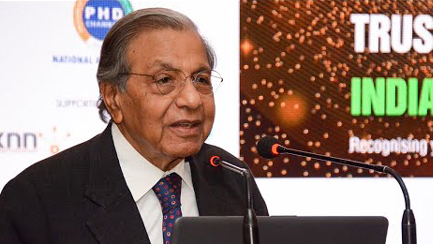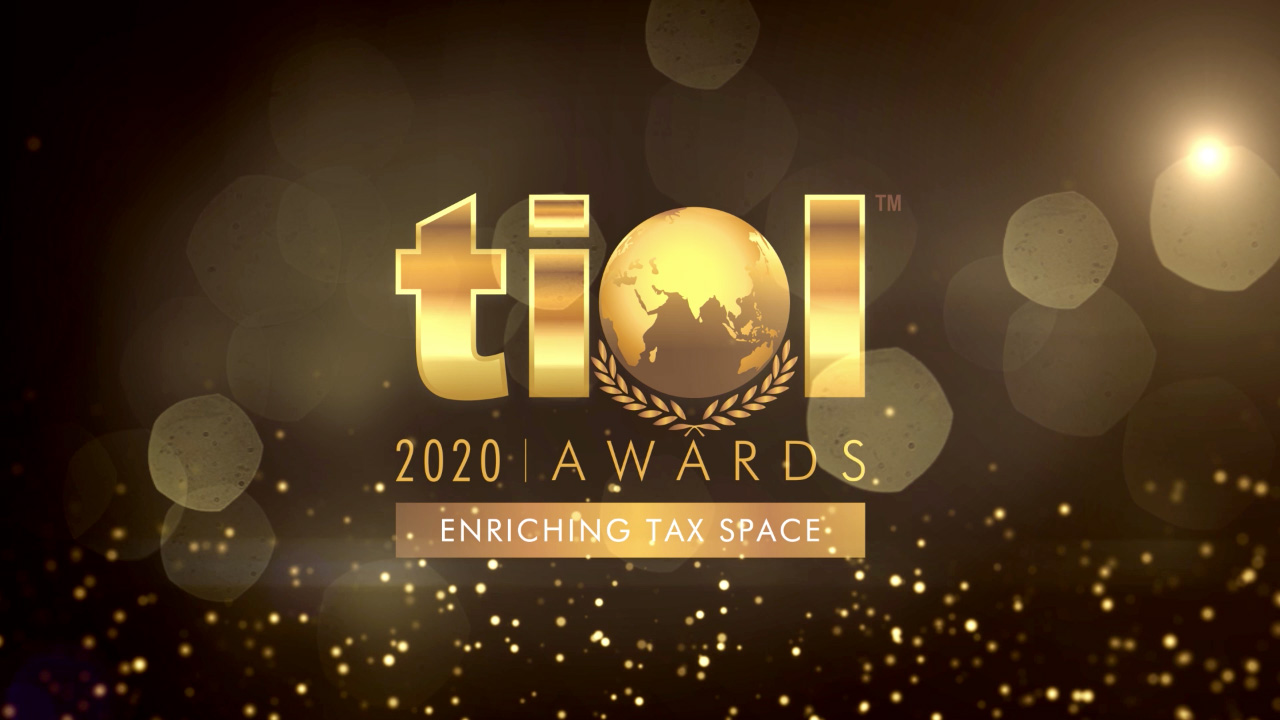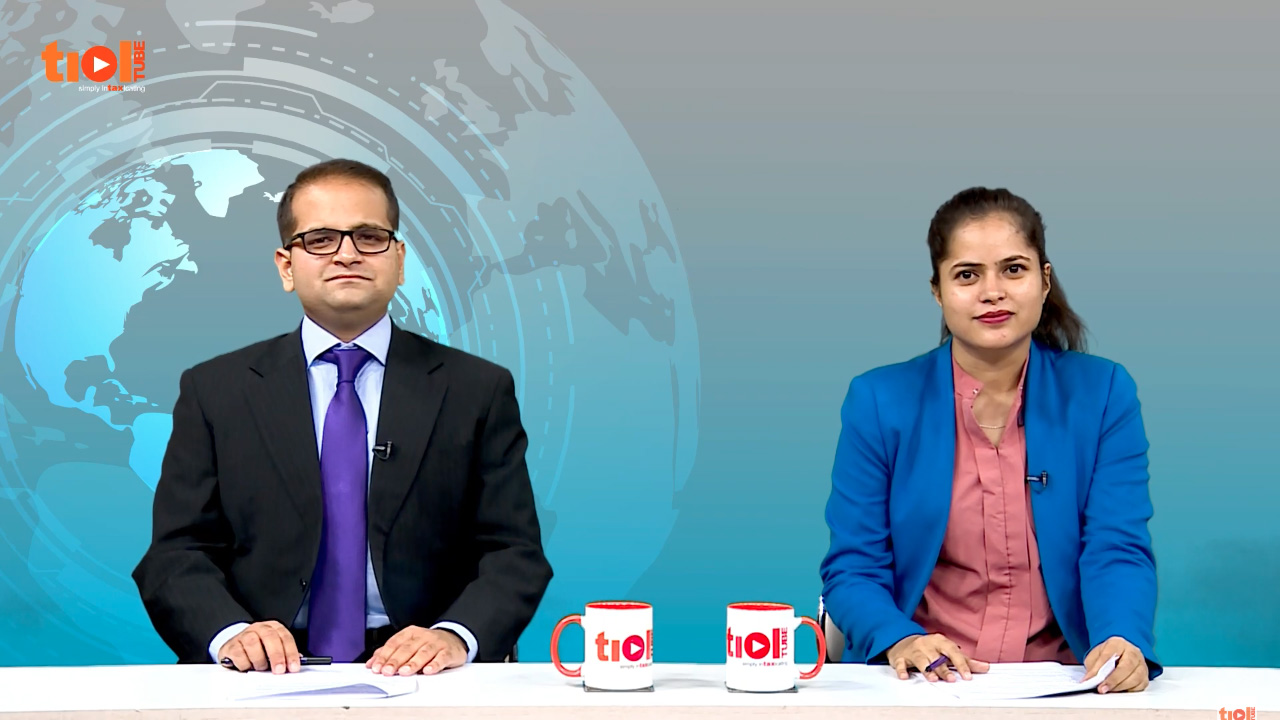|
SERVICE TAX
2019-TIOL-3528-CESTAT-HYD
Alliance Shipping And Logistics Vs CCT
ST - The assessee is a service provider registered for providing clearing and forwarding agent service u/s 65(105)(j) of the Finance Act 1994 and paid service tax under this head - From the records, it appeared that the assessee had not rendered the services or paid service tax under any other head - The assessee had also availed Cenvat credit - The dispute arose regarding availment of credit on motor vehicles as capital goods by the assessee - The term capital goods is also defined in Rule 2(a) of CCR 2004, which excludes motor vehicles except when used for rendering service of courier agency, tour operator service, rent-a-cab service, cargo handling agency, goods transport agency, outdoor catering agency and pandal & shamiana service agency - The assessee was found to not have rendered any of these services and to have provided only that of clearing & forwarding agent - An SCN was issued proposing to deny cenvat credit availed on motor vehicles and recover the same u/r 14 of CCR 2004 r/w proviso to Section 73(1) of the Finance Act 1994 - It was also proposed to recover credit availed on maintenance and repair of these vehicles u/r 14 of CCR 2004 r/w proviso to Section 73(1) of the Finance Act - The SCN also proposed to charge interest u/s 75 and impose penalty u/s 78 - Such demands were sustained by the adjudicating authority and such findings were sustained by the Commr.(A) - Hence the present appeal.
Held - The short issue at hand is whether the assessee is entitled to avail credit on capital goods on motor vehicles used for rendering clearing and forwarding agency services - The service was clearly not covered u/r 2(a)(B), which did not permit Cenvat credit used for cargo handling & transportation but specifically for rendering some service classifiable under sub-clauses of Section 65(105) - The assessee claimed that its clearing & forwarding activity also involved cargo handling, it should be entitled for cenvat credit - Such issue merits being examined in light of Section 66F of the Finance Act - Considering the provisions of Section 66F, it is evident that the services rendered often involve more than one type of activities - In such circumstances, the service should be classified as that service which gives its essential character - There is no provision in Section 66F or under any other provision to classify the same service under more than one head for different purposes such as one head for paying service tax and another to claim Cenvat credit - Clearly, the assessee rendered only clearing and forwarding services, which do not entitle it for cenvat credit on motor vehicles in view of the specific exclusion in CCR 2004 - Hence, the assessee wrongly availed cenvat credit - As there are explicit provisions, there is no reason for the assesseeto avail credit when it did not render any service which would entitle it to avail credit - Such activity clearly violates the provisions of CCR with intent to avail irregular credit and evade payment of service tax - Thus the invocation of extended limitation and imposition of penalty is justified - The O-i-A in challenge merits being upheld: CESTAT
- Assessee's appeal dismissed: HYDERABAD CESTAT
2019-TIOL-3527-CESTAT-CHD
Gee City Builders Pvt Ltd Vs CCE & ST
ST - This appeal has been filed by assessee against the order of Commissioner (A) confirming the demand of service tax on residential complex constructed by them - The definition of service liable to tax under the head of construction of complex service was amended by introduction of explanation to the clause (zzzh) of sub section (105) of Section 65 of Finance Act - It is apparent that the cases where any amount is received by builder from the prospective buyer of flats in installments in an agreement of sale became liable to tax only from the introduction of the above explanation w.e.f. 01.07.2010 - The identical issue has been decided by Tribunal in case of Green View Land & Buildcon Ltd - It is seen that the ratio of said decision is applicable to the facts of the case in hand - Relying on the aforesaid decision, the appeal is allowed: CESTAT
- Appeal allowed: CHANDIGARH CESTAT
CENTRAL EXCISE
2019-TIOL-2806-HC-DEL-CX
Orient Micro Abrasives Ltd Vs UoI
CX - Petitioner seeks quashing and setting aside of Order passed by the Principal Commissioner and Addl. Secretary to the Government of India, in his capacity as Revisionary Authority, u/s 35EE of the CEA, 1944 - On 30th October, 2013, the petitioner filed a claim, for rebate of central excise duty, paid on Chlorinated Paraffin Plasticisers, exported by the petitioner as a merchant-exporter, to USA, during the period 6th June, 2012 to 8th June, 2012 - the rebate claim was rejected by the Assistant Commissioner of Customs on the ground that it was barred by time, as it had been filed after the expiry of one year from the date of export of the goods - said order was upheld by the Commissioner of Customs (Appeals) and the revision application met the same fate - petitioner had contended before the said authority that the rejection of its rebate claim, on the ground of limitation, was unsustainable, as there was no stipulation of any one year time limit, either in Rule 18 of the CER, 2002 or in Notification 19/04-CE (NT) dated 6th September, 2004, issued under Rule 18 of the CER whereunder the rebate claim was filed.
Held: Section 11B of the Act is clear and categorical - The Explanation thereto states, in unambiguous terms, that Section 11B would also apply to rebate claims - submission that the date of submission of the ARE-1, to the Customs Officer, ought to be treated as the date of filing of the rebate claim is also unacceptable, the reason being that "ARE-1" expands to "Application for Removal of Excisable Goods" and is, therefore, an application which accompanies the removal of the excisable goods, and its submission is necessarily anterior, in point of time, to the export of the goods - submission of the ARE-1 is anterior to the filing of the rebate claim and the date of submission of the said application cannot, therefore, be treated as the date of filing of the rebate claim - no statutory provision, or judicial authority, enabling the date of submission of the ARE-1 application to be treated as the date of filing of the rebate claim has been brought to the notice of the Bench - Periods of limitation, stipulated in taxing statutes, are sacrosanct - Section 11(B)(1) of the CE Act read with the Explanation thereto, clearly requires any claim for rebate to be submitted within one year of export of the goods, where against rebate is claimed - There is no provision which permits relaxation of this stipulated one year time limit - no reason to disturb the concurrent view of all three authorities below i.e. the AC, the Commissioner (Appeals) and the Revisionary Authority, that the rebate claim of the petitioner merited rejection, as it was barred by time - Petition dismissed: High Court [para 14, 17, 19, 20, 22]
- Petition dismissed : DELHI HIGH COURT
2019-TIOL-3526-CESTAT-MUM
Kilitch Drugs India Ltd Vs CCE
CX - The dispute in this appeal of assessee pertains to clearance of 'physician's samples' between January 2005 and January 2008 for which duty along with interest thereon confirmed and penalty of like amount was imposed by original authority has been approved - The issue to be noted is that the 'physician's samples' are not distributed to physicians by assessee; these are produced on behalf of principal-manufacturer and sent to them - As these were not intended for retail sale, the applicability of section 4A of CEA, 1944 does not arise - Taking recourse to section 4 of the CEA, 1944, the assessee has adopted 'cost construction' which is the appropriate method considering that the transaction is not one of sale - Considering the consistent stand of Tribunal and the non-applicability of decision in re Hyva (India) Pvt Ltd - 2015-TIOL-1099-HC-MUM-CX and in re Indian Drugs Manufacturer's Association - 2006-TIOL-292-HC-MUM-CX , which did not take into consideration that the clearances were effected by job-workers, Tribunal can arrive at no other conclusion - Accordingly, the impugned order is set aside: CESTAT
- Appeal allowed: MUMBAI CESTAT
2019-TIOL-3525-CESTAT-MUM
CCE & C Vs Rishi Steel And Alloys Pvt Ltd
CX - Revenue has filed the appeal against O-I-A which upheld the appropriation of Rs. 26,86,071 from the amount of Rs. 30,00,000/- sanctioned by original authority while also sanctioning refund of Rs. 20,12,525/- - The revenue is aggrieved by sanction of Rs. 20,12,525/-, which is sought to be reversed, as also by the sanction of Rs. 30,00,000/- though partially appropriated - No appeal had been filed by Revenue before the first appellate authority against the sanction of Rs. 30,00,000/- - Accordingly, that sanction cannot be agitated before the Tribunal in an appeal arising from a decision of first appellate authority on challenge by the assessee - It is seen that the sanction of Rs. 20,12,525/- is a consequence of the finding by the first appellate authority that such deposit had been effected in relation to the SCN - Those proceeding culminated in the order of the first appellate authority dated 6th September 2010 setting aside the demand - That matter, on appeal of Revenue, had come up before Tribunal and was remanded to original authority for determination of liability after considering the submissions of assessee - As the order of first appellate authority which led to sanction of refund in the impugned order is non-existent and the SCN requires fresh disposal, the interim deposit should stand restored - Accordingly, matter remanded for deciding eligibility only in relation to the claim for Rs. 20,12,525/-: CESTAT
- Matter remanded: MUMBAI CESTAT
CUSTOMS
2019-TIOL-3524-CESTAT-HYD
Roshni Mathurdas Kothadia Vs CC
Cus - The assessee was departing for Mumbai from Hyderabad by domestic flight when the security staff found yellow gold biscuits in her possession - The assessee could not discharge the burden under section 123 of Customs Act, 1962 of proving that the goods were not smuggled - Accordingly, after following due process, the Additional Commissioner ordered absolute confiscation of five gold bars weighing 500 grams from the assessee under section 111(d) of Customs Act, 1962 - The seizure was made within the country on suspicion of the gold being smuggled - The gold was not seized as a baggage but it was seized as foreign marked gold with respect to which the possessor of gold was responsible to prove under Section 123 that it is not smuggled - The assessee could not discharge the responsibility - In fact, the gold was smuggled as it was not declared by assessee while bringing into India - However, there is sufficient reason in appeal showing that the assessee was returning to India after a period of 16 years and was ignorant of legal provisions - During investigation, assessee has fully disclosed the nature of gold and has produced whatever documents were available with her showing its purchase in USA - There is nothing on record to show that she was trying to mislead the investigating authorities - She has also fairly conceded that she had brought the gold from USA and has not declared to the Customs authorities nor paid any duty thereon - She has also confessed that she has not declared the same in her baggage declaration column - The quantity of gold is 500 grams and is not a commercial quantity - There is sufficient grounds for allowing redemption to the assessee under section 125 of Customs Act, 1962: CESTAT
- Appeal disposed of: HYDERABAD CESTAT |
|



ADAHEAD_15.jpg)





